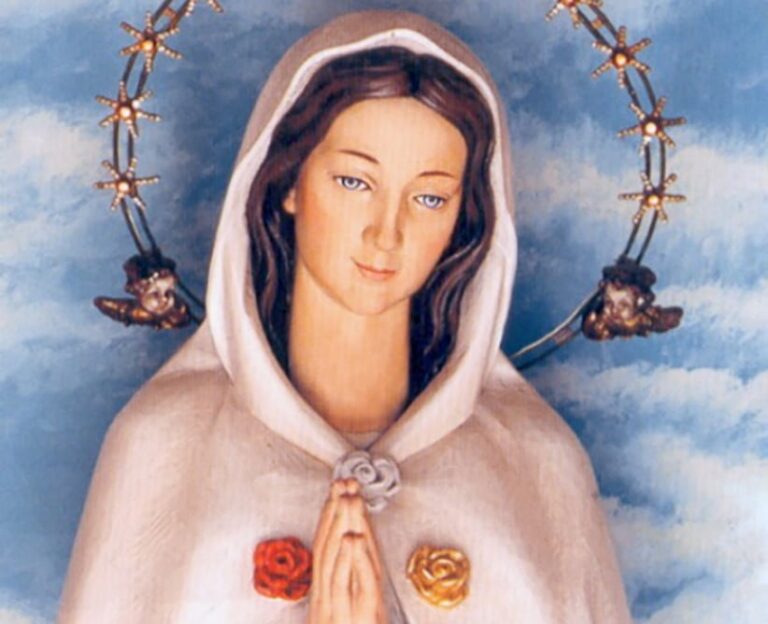Understanding Christianity’s Perspective on the Virgin Mary
Christianity holds a significant veneration for the Virgin Mary, viewing her as the mother of Jesus Christ and a pivotal figure in the faith. While beliefs about her vary among different Christian denominations, many recognize her as a model of faith and obedience. The doctrine of the virgin birth underscores her unique role, and traditions surrounding her life and virtues inspire millions. This article explores the diverse perspectives within Christianity regarding Mary, shedding light on her importance in both theology and worship.
What is Christianity’s view of the Virgin Mary?
Christianity honors the Virgin Mary as the mother of Jesus, viewing her as a symbol of purity and obedience, but beliefs about her role vary among denominations.
Should Christians pray to Mary?
In Christian belief, prayer is primarily directed to God, with Jesus serving as the intercessor for believers. The Holy Spirit also plays a importante role, guiding and assisting individuals in their prayers. This framework emphasizes a direct relationship between the believer and God, reinforcing the understanding that Jesus is the mediator through whom all prayers are offered.
While Mary holds a revered place in Christianity for her humility and the pivotal role she played as the mother of Jesus, her function is not to intercede on behalf of others. Instead, Christians are encouraged to honor her example of faith and obedience without seeking her as a mediator in their prayers. This distinction ensures that the focus remains on the divine connection established through Jesus Christ.
Do Christians believe in Joseph and Mary?
Christians hold a deep reverence for Mary and Joseph, viewing them as central figures in the story of Jesus’ birth. According to the Gospels, Mary conceived Jesus through the Holy Spirit, affirming her pivotal role as the mother of the Son of God. This miraculous event highlights her unique position in Christian belief, where she is often celebrated for her faith and obedience.
Joseph, though not Jesus’ biological father, is also greatly respected among Christians. He is seen as the legal guardian who provided for and nurtured Jesus during his early years. This duality of their roles emphasizes the importance of both figures in the Holy Family, showcasing a profound partnership in fulfilling God’s plan. Together, Mary and Joseph exemplify love, commitment, and faith, making them cherished saints in Christianity.
Is Mary considered a symbol of Christianity?
Mary stands as a timeless emblem within Christianity, embodying both the enduring essence of the faith and a profound richness of meaning that resonates across generations. Her role transcends mere representation; she is a source of inspiration and comfort, reflecting ideals of compassion, humility, and maternal love. As believers turn to her for guidance and intercession, Mary remains a vital connection to the spiritual heritage of Christianity, inviting deeper reflection on the values and teachings at the heart of the faith.
Exploring Mary’s Role in Faith and Tradition
Mary holds a pivotal position in both faith and tradition, serving as a bridge between the divine and the human experience. Revered as the Mother of Jesus, she embodies compassion, humility, and unwavering faith. Her life story offers profound lessons on trust and surrender, inspiring countless individuals to seek a deeper connection with the divine. Through her example, believers find encouragement to navigate their own spiritual journeys, embracing the values of love and service that she exemplifies.
In various religious traditions, Mary is honored in diverse ways, from the solemnity of her Assumption to the vibrant celebrations of her feast days. These observances not only commemorate her significance but also foster a sense of community among the faithful. As a symbol of hope and intercession, Mary invites believers to reflect on their own roles within their traditions, encouraging them to cultivate a spirit of devotion and grace. Her presence in prayers and rituals underscores the importance of nurturing faith and tradition, reminding us that spirituality is both a personal journey and a shared experience.
The Virgin Mary: A Symbol of Purity and Devotion
The Virgin Mary stands as a timeless emblem of purity and devotion, embodying the ideals of compassion and grace. Revered across cultures and religions, she represents the nurturing spirit of motherhood and the strength found in faith. Her unwavering commitment to her divine mission inspires countless individuals to seek solace in her example, promoting love and empathy in a world often fraught with challenges. Through her story, the Virgin Mary encourages us to embrace our own paths with humility and courage, reminding us that true strength lies in selflessness and unwavering belief.
Mary in Scripture: Insights and Interpretations
Mary, the mother of Jesus, holds a unique and revered position in Scripture, symbolizing faith, obedience, and maternal love. Her narrative begins with the Annunciation, where the angel Gabriel greets her with the proclamation that she will conceive the Son of God. This moment not only highlights her purity and trust in God’s plan but also sets the stage for her pivotal role in the salvation story. Mary’s response, “I am the Lord’s servant,” exemplifies her unwavering commitment to divine will, making her a model of discipleship for believers.
Throughout the New Testament, Mary’s presence is a thread that weaves through the life of Jesus, enriching the Gospel accounts. From the Nativity to the Crucifixion, her experiences reflect profound emotional depth and resilience. At the Wedding at Cana, her intercession demonstrates her understanding of Jesus’ mission, while at the foot of the Cross, her sorrow encapsulates the heartache of loss and the strength of faith. These moments reveal how Mary embodies both the human experience and divine purpose, inviting readers to contemplate their own journeys of faith.
Mary’s role transcends her historical context, inspiring countless interpretations and devotions within the Christian tradition. She is often seen as a figure of compassion, intercession, and hope, serving as a bridge between humanity and the divine. The various titles attributed to her, such as “Our Lady” and “Queen of Heaven,” reflect her multifaceted identity and the deep reverence she commands among believers. Through the lens of Scripture, Mary invites all to explore the richness of faith, encouraging a personal connection with the sacred narrative that continues to resonate through the ages.
The Significance of Mary in Christian Doctrine
Mary holds a central place in Christian doctrine, revered not only for her role as the Mother of Jesus but also for her embodiment of faith and obedience. Her acceptance of the Annunciation signifies a profound trust in God’s plan, illustrating the power of surrender and devotion. This pivotal moment highlights her as a model of discipleship, inspiring countless believers to embrace their faith with similar courage and humility.
In addition to her personal virtues, Mary is seen as a symbol of hope and intercession within the Christian community. Many traditions honor her as a compassionate advocate, bridging the gap between humanity and the divine. Her significance transcends cultural boundaries, as she is celebrated in various ways across denominations, reflecting a universal reverence that underscores her importance in the spiritual lives of millions. Through her example, Christians are encouraged to cultivate a deeper relationship with God and to seek solace in her unwavering support.
Unveiling the Legacy of the Virgin Mary in Christianity
The Virgin Mary stands as a pivotal figure in Christianity, embodying grace, compassion, and unwavering faith. Revered as the mother of Jesus Christ, her role transcends mere biography; she symbolizes the profound connection between humanity and the divine. Through centuries of art, theology, and devotion, Mary has inspired countless believers, serving as a model of humility and strength. Her presence in the Gospels reflects a deep commitment to God’s will, representing the ideal of discipleship that resonates with Christians across generations.
Mary’s legacy is not only spiritual but also cultural, influencing the development of Christian traditions and practices. From the solemnity of Marian feast days to the vibrant expressions of faith seen in various cultures, her impact is evident worldwide. The veneration of Mary fosters a sense of community among believers, inviting them to explore themes of motherhood, sacrifice, and love. As a symbol of hope and intercession, the Virgin Mary continues to inspire faith journeys, inviting all to deepen their relationship with the sacred.
Christianity holds a profound reverence for the Virgin Mary, recognizing her as a pivotal figure in the faith. While beliefs about her role vary among denominations, she is universally acknowledged as the mother of Jesus Christ, symbolizing purity and devotion. Her significance extends beyond mere historical context; Mary inspires millions, embodying faith, humility, and maternal love. Whether through prayer, veneration, or theological reflection, the diverse interpretations of her life continue to enrich the spiritual landscape of Christianity, inviting believers to explore deeper connections with their faith.







